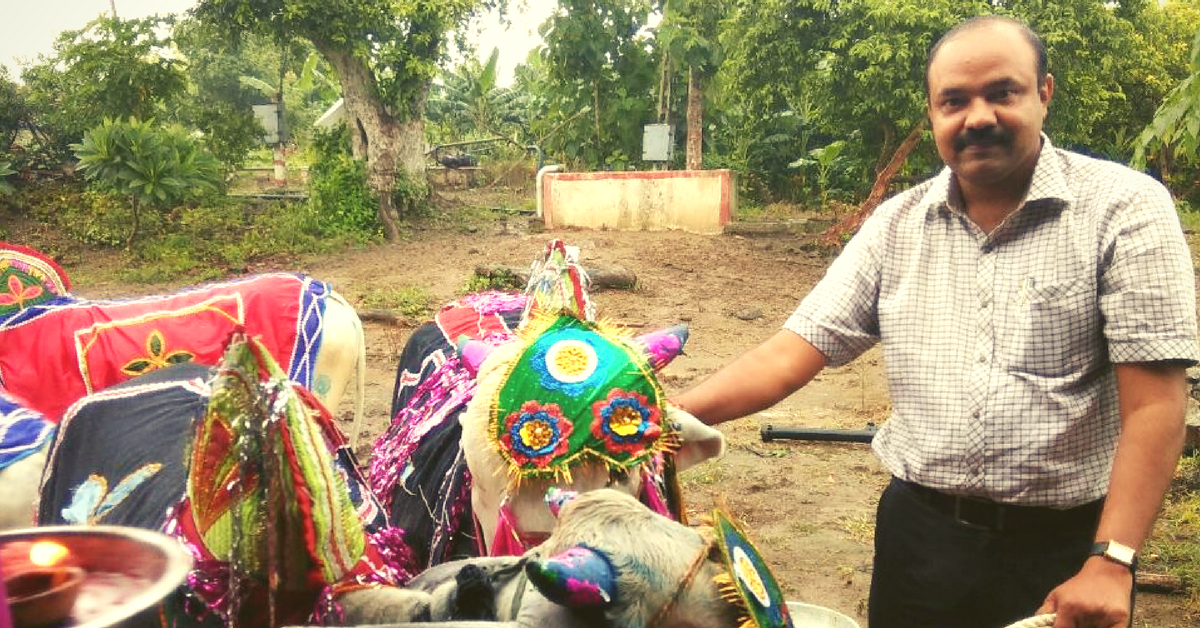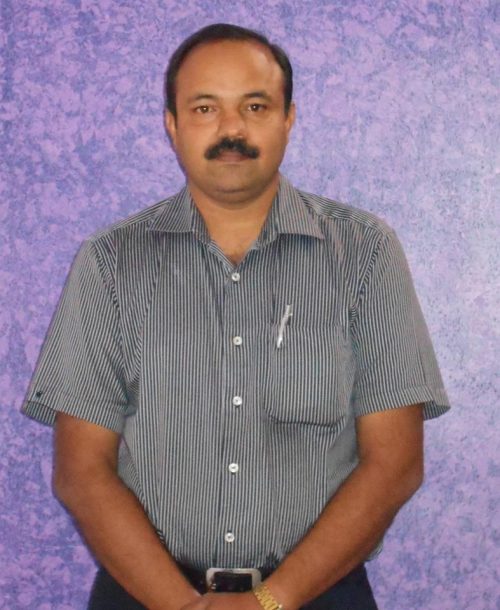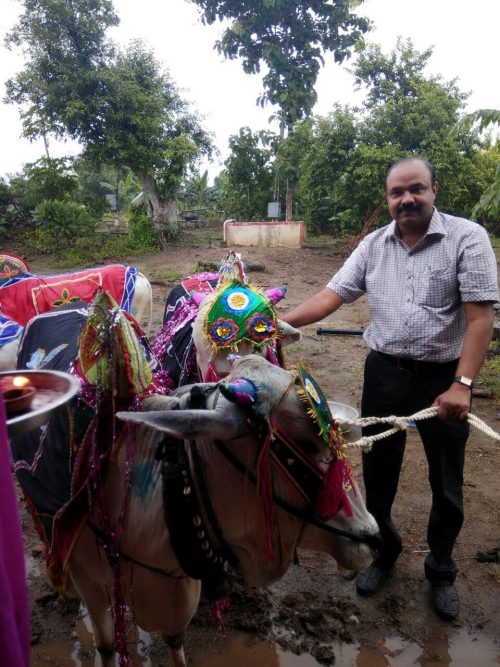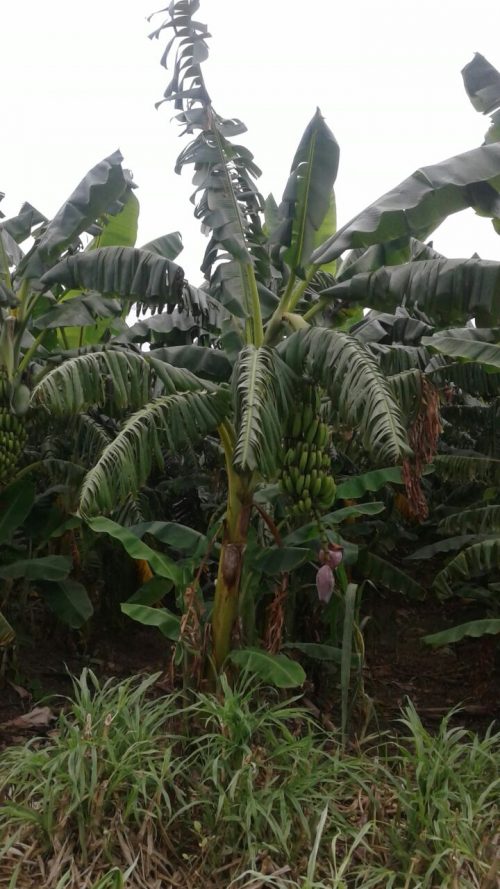This Automobile Engineer Switched To Farming, Making Lives Better
Meet Pramod Gautam - a former automobile engineer who switched to farming (of all things) in 2006 and after implementing a radically different method of cultivation, while also helping other farmers grow as well.

Is engineering the only solution in India? Meet Pramod Gautam – a former automobile engineer who switched to farming (of all things) in 2006 and after implementing a radically different method of cultivation, while also helping other farmers grow as well.
Although born and raised in Nagpur, he spent a considerable amount of time in the family’s ancestral village – Wadhona. As a child, Pramod helped his father on their farm in Wadhona and as a result, grew to love the activity.
But, he never imagined farming as a viable career option.
Like most Indian parents, Pramod’s father wanted him to become either a doctor or an engineer, but definitely not a farmer.
So, he went ahead and got a degree in automobile engineering from Yashwantrao Chavan College in Nagpur.

This helped him land a good job with a salary to match. But soon enough the job began to frustrate Pramod, who eventually decided to open his own business that dealt with spare parts of vehicles.
But the itch to farm did not let the business last.
In 2006, Pramod abandoned the thought of trying to do anything with engineering and decided to give farming an earnest shot on his 26-acre ancestral land.

“I tried a lot but engineering was not something that interested me. On the other hand, I loved to be on the farm even though it required double the work,” says Pramod while talking to The Better India.
Initially, Pramod faced his share of challenges. He planted white groundnuts and turmeric all over the land but reaped no benefits. Availability of labour was another big issue as workers preferred to migrate to cities and work in factories.
Pramod also became the proverbial butt of all jokes – an automobile engineer who left a good job and became a farmer.

Similar Story

Black Potatoes? Meet the Man Taking Black Super Crops to 15 States
Ravi Prakash Maurya, a farmer in Uttar Pradesh is cultivating ‘black crops’ — rice, wheat, tomato, niger seeds, turmeric and potato — all with one thing in common, their colour and presence of antioxidants. Here’s why he’s promoting black potatoes across India.
Read more >
The losses made Pramod realise his method of farming was wrong. He decided to switch to other crops, which were also less labour intensive.
In 2007-08, Pramod stopped traditional farming and switched to horticulture. He planted oranges, guavas, lemons, mosambis (sweet lime), raw bananas and toor dal.

“In horticulture, you don’t have to depend on labour as you have to plant it just once and the plants and trees do not require as much care as the traditional crops like cotton or soyabean. Moreover, there is a government scheme wherein farmers who are doing horticulture are repaid the entire investment amount and even more every three years,” says Pramod.
Once harvested, Pramod would market the fruits in the Kalmana market of Nagpur.
It was when he started growing and selling pulses that a new idea struck him, Pramod noticed that while the farmers sold their pulses to mills for very low prices, the mill owners would process the pulses and sell the polished product back to the farmers for nearly double the original price.
These mills were also far away from the farms, making the cost of transport very high. All of these factors gave lentil-growing farmers a paper thin profit margin. It was then that Pramod decided to start his own mill.
After consulting several experts, he realised the mill he had to make would cost him around Rs. 25 lakh, but all he had was a lakh and a half. Pramod was not going to let the lack of funds deter him, so he took a loan from the bank to make up for the rest of the amount.

Similar Story

63-YO Earns Rs 1 Lakh/Month With His Banana Empire, Distributes 500 Varieties For Free
Thiruvananthapuram’s Vinod Sahadevan Nair, also known as ‘Banana Man’, shut down his web designing firm in Kochi to return home and build a unique farm. Today, he grows over 500 varieties of bananas.
Read more >
Farmers growing lentils now don’t have to travel far. Pramod processes the dals at the rate of Rs. 4.5 per kg and gives 65 kgs of processed dal per quintal to each farmer too.This helps the farmers get a free supply of dal for the entire year and also a good income from selling the processed dal to the consumer.
“The farmers now sell their dal directly to their relatives and friends in Nagpur, which is earning them double the profit they were getting by selling the raw material,” says Pramod.
Pramod sells the processed and unpolished pulses with the brand name of ‘Vandana’. His annual turnover comprises earnings from his dal mill and horticulture, which is much more than what he was earning as an engineer.

About 2500 farmers from 35 neighbouring villages, which include Borgaon, Wadhona, and Madasawangi, come to Pramod’s mill to get their pulses processed daily.
When asked how Pramod has managed to build such a huge circle of his customers he says, “I have never treated them like customers but like my brothers. Their raw material is treated in the same way like mine. We don’t polish the dals but make sure the covers are removed properly. It has been nine years since I have started the mill, but till date there was never a delay to deliver the processed product to the farmers. Each one of them is also free to get back the product if they are not satisfied with it and we immediately replace it,” says Pramod.
Around 2500 quintals of pulses are processed in Pramod’s mill every year. The mill has also given employment to 8 youths of the village. After spending on the initial investment, electricity charges and the salaries, Pramod still manages to get 40% profit from the mill. His mill is also open for any farmer who wishes to start a mini mill in the area. According to Pramod, a mini mill starts from Rs. two lakh.
Pramod, who is very content with farming, wants our education system to stress on skill development rather than focus only on theoretical teaching. He strongly believes that agriculture can be a great career option for the future generation and can solve the environmental and behavioural issues our children are facing these days.
If you found our stories insightful, informative, or even just enjoyable, we invite you to consider making a voluntary payment to support the work we do at The Better India. Your contribution helps us continue producing quality content that educates, inspires, and drives positive change.
Choose one of the payment options below for your contribution-
By paying for the stories you value, you directly contribute to sustaining our efforts focused on making a difference in the world. Together, let’s ensure that impactful stories continue to be told and shared, enriching lives and communities alike.
Thank you for your support. Here are some frequently asked questions you might find helpful to know why you are contributing?


“Our society needs to understand that farming is the most important profession and a farmer should be respected for the same. Only if we add some basic knowledge of farming, farmers can grow like anything and can make our country a golden bird once again,” he says.
You can contact Pramod on 9422805257
Like this story? Or have something to share? Write to us: [email protected], or connect with us on Facebook and Twitter.
NEW: Click here to get positive news on WhatsApp!
This story made me
-
97
-
121
-
89
-
167










